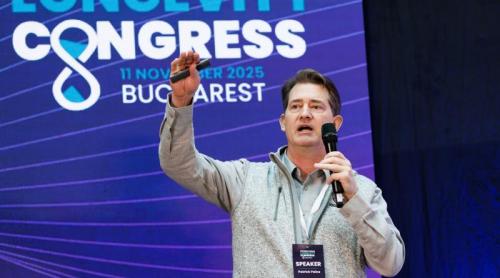Romaniaâs inventors sweep clean the medals off the tables at international competitions. Yet, few of their ideas materialize and turn into profitable business opportunities. Only 15% of their ideas are actually licensed and develop into actual devices.
Ion Carabas is a rare breed among Romanian inventors: he built a paint spraying machine which he markets now in Spain. His comparative advantage is not only the better model he made, but also the better price: 9,000 euros for a Romanian made machine, compared with 17,000 euros for a Spain or Belgium made one.
Carabas estimates
that he will build 80 machines this year, all for the foreign market. Two Romanian clients, who already have one of his machines each would like to buy more "but I have not enough production capacity," said Carabas, "so I will rent them my own machines."
He plans a 200,000 euros investment in a new production facility and says his success was also possible because his is a niche market. "There are some 500 such machines in Spain, and some 1,500 machines in France," Carabas said.
Inventions validated scientifically may not be arrived at in the absence of serious scientific research, explains Margareta Oproiu, an adviser on intellectual property rights.
One may have a brilliant idea while tying up his shoe lace, but only if years of work and study of that problem stay behind that one person, adds Oproiu.
Romaniaâs National Office for Inventions and Trade Marks (OSIM) receives some 1,500 each year, but only 15% of them are validated by licensing.
Some 65% of licenses come from individuals, 20% from companies and the rest from academic institutions; their total number stays at a third of the number of licenses granted during the communist regime. The reason for the larger number of licenses during communism was twofold: universities had a "compulsory" quota of inventions they should have provided, and, because of that, many were not original work, but copies of foreign ideas, which was difficult to check, given the poor access to accurate and timely information.
"Furthermore, the Romanian law favored domestic companies over foreign ones," said Oproiu.
Romaniansâ idea of what an invention should target is outdated, further explains Oproiu. She says many of their proposals are not pushing the limits of knowledge but oddities, "like making a gramophone play backwards and things of that sort."
Oproiu says that foreign companies approach her asking for Romanian licensed ideas that they could buy, but that Romanian inventors do not match this with taking their ideas one step further from the print of the papers they have developed them on.
"This is wrong. People invest in something they can cash on, not on a story on a sheet of paper," says Oproiu.
She recalls a recent such failure of communication between a Romanian inventor, having had licensed his idea for an early diagnose for cancer, for whom she had found foreign companies willing to put their money into it, provided the inventor made a demonstration his idea worked.
But the latter refused, saying that developing his idea further was the task of the company buying it.
"This was a wrong move, I assure you. He would have been loaded with money by now," said Oproiu.
But she has not only failure stories: one hydraulic machine with folding wings for the oil industry was bought immediately and the inventor asked for his idea to be licensed in the US, Europe and Asia.
Romanians are currently proposing high-standard ideas in the field of telecommunications, explained Oproiu.
Translated by Anca Paduraru




















